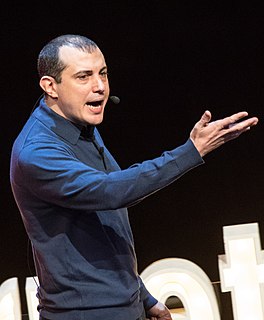A Quote by Jeremy Allaire
We really think of Bitcoin as a global, interoperable payment network instead of a store of value.
Related Quotes
In 2017, people have realized there isn't going to be one crypto to rule them all. You're seeing vertical solutions where XRP is focused on payment problems, Ethereum is focused on smart contracts, and increasingly, bitcoin is a store of value. Those aren't competitive. In fact, I want bitcoin and Ethereum to be successful.
A currency serves three functions: providing a means of payment, a unit of account and a store of value. Gold may be a store of value for wealth, but it is not a means of payment. You cannot pay for your groceries with it. Nor is it a unit of account. Prices of goods and services, and of financial assets, are not denominated in gold terms.


































